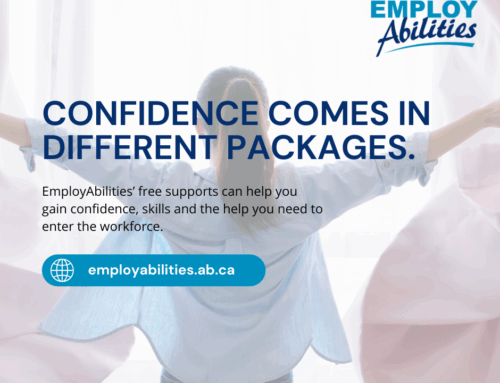Posted by Gary Karp on Jun 17, 2013 in Disability & Culture, Disability and Employment, Disability and Work
When the spirit of Modern Disability is infused into your workplace culture, profound effects flow into your organization. This first-in-a-series article looks at a core, foundational piece of this influential spirit: adaptability.
People with disabilities of all kinds and all degrees who are out there living their lives fully will tell you that they have learned an essential fact of being human: we are innately adaptable beings. This adaptability is not something we see only in rare, inspirational figures who “overcome” their disabilities. It’s just how they do what they do. It’s common.
We adapt in a functional sense, finding ways to do what we need to do. I can’t walk, so I adapt by becoming skilled as a wheelchair user. A blind person uses screen reader technology to use a computer. A person who is deaf communicates with sign language, forming an actual culture of expression and art with it. People innovate and design and develop low- and hi-tech solutions. And so on.
We also adapt with acceptance. It’s our nature to find a frame where we feel alright about ourselves. People discover that having a disability doesn’t preclude high self-esteem, confidence, and valuing ourselves as precious individuals. Again, this is not a rare thing. It’s a common thing for people with disabilities who choose to embrace their lives.
These are extremely powerful qualities to be modeled in the workplace. When people with disabilities are part of the team, everyone else witnesses this universal spirit of adaptability. They see that it as a way of life for them.
What’s the essence of adaptability at its core? Problem solving. For people with disabilities, their orientation is to look for what’s possible, and how to make it happen. They tend to look at things in terms of “how can we?,” not “we can’t.” They are oriented to possibility, not limitation.
This is an especially important view to have infused in the thinking of existing employees. When someone acquires a disability, and they understand that disability is something to which we first attempt to adapt, the process that follows works much better — for the individual and the employer.
This is a matter of law; when someone reports a disability, the “Interactive Process” is set in motion. The worker and employer attempt to design a transitional work program in response to the disability. They seek to adapt.
Transitional work programs are designed to spare an organization from losing a valuable employee — and they work. Employment has been proven to be rehabilitative. The more people think in terms of adaptability, the more of a commitment they will make to a collaborative process of finding out how to stay at work or return to work as effectively as possible.
This doesn’t succeed simply because some legislation imposes a requirement on the workplace. The interactive process is far more likely to produce success when an employee understands disability as adaptability. That person will make a deeper commitment to the process, and not be as slowed by doubts about their ability to work with their disability.
A hiring manager who sees disability as an adaptable thing rather than a limiting thing is far more likely to recognize the value of a job candidate who happens to have a disability. What matters is finding people who will make the best contribution to the goals and mission of the organization. That manager is going to better assess a candidate with a disability if they are tuned into their adaptable, problem-solving nature.
The spirit of adaptability that disability awareness brings to a workplace is extremely good business. It fosters creativity and a greater willingness to search for solutions to problems. It keeps good people on the job rather than going off “on disability” and collecting benefits. It saves organizations from a degree of recruiting and rehiring and ramping up of a new person — who might not work out then you have to do it all over again — when a valued existing employee acquires a disability.
The spirit of adaptability helps your organization attract and keep good people, contributes to success, and saves tons of money.
Connect to link for more on Gary: http://garykarpspeaks.com/?p=784&utm_source=Modern+Disability%2C+June%2C+2013&utm_campaign=1012+Newsletter&utm_medium=email





